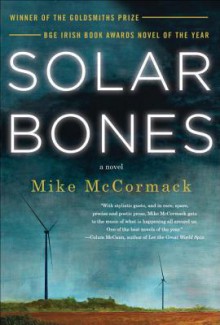
"History of Wolves" is easy to read but harder to understand.
I know how I feel about this book but I'm not sure what to think about it.
It's a beautiful piece of writing that uses language with relentless precision to climb inside the head of the main character.
Each page is watermarked with a profound sense of loneliness that the main character, our narrator, struggles with, denies, rails against, imagines gone and sometimes gives in to.
I felt fully present in each of the moments described in this book. So much so that, as we drifted between past, present, imagination, dream, memory and action, I found myself accepting what was going on rather than trying to make sense of it, much in the same way that the main character does.
Novels amplify my desire for a narrative that makes sense, that tells me something, that gives me meaning. "History of Wolves" frustrates that expectation. Rather than leading me to a conclusion or a judgement and "making sense" of the main character's life for me, this novel invites me to reach my own conclusions and then to challenge them and then to wonder if conclusions are devised to be a source of spurious comfort in an ambiguous world.
The story is told by Madeline, now thirty-seven, revisiting the events of a summer when she was fourteen and the things that led up to it and followed on from it.
Madeline, who also goes by the name Linda at school and with the family she babysits for, is both the most unreliable of narrators and the most honest of narrators. She shares who she is by showing what she has done and what she was thinking and feeling at the time but she gives no direct lectures, even to herself, on what this means.
Her narrative is not linear. It follows her reflections, making connections between past and present and starting from different "nows" as she tells her tale.
Madeline/Linda both accepts and rejects the idea that she is broken, that her childhood made her into someone with one foot always reaching out into space at the edge of the cliff. She sees herself, or perhaps her idealised self, not as someone human but as a wild thing, at home in the woods and on the lake but who still sometimes succumb to the pull of a hearth and food and a pat behind the ear, like a wolf playing at being a domestic dog.
The book cover carries a Jodi Picoult style "How far would you go to belong?" tag line on the cover that seems to me to miss the meaning of this book entirely.
I don't think it's belonging that Madeline's looking for, or even love. I think she wants someone who needs her and depends on her and supports her in an identity she approves of.
Madeline can be cruel and fickle. She is aware of the power she has over others. She is also aware of her own insignificance. She seems to be trying to find people and a place where she can be what she is and still be needed by someone who sees her clearly. Except that is too glib. It may be what she wants but she would probably resist anyone who tried to give it to her.
"History of Wolves" walks around two ways of establishing identity: "We are what we do" and "We are what we think". Madeline, at least the thirty-seven year old Madeline, doesn't seem to find either argument persuasive. The way she reviews her own life suggests that she believes that we are who we are and it doesn't change much. At one point she goes further and suggest that evil enters the world when we let our actions be driven by belief, a personal narrative that tells us what we want to be true and absolves us from dealing with reality.
I need to think about "History of Wolves" some more. I probably need to read it again. Not because it's a puzzle I haven't solved or because the writer's intention escapes me but because I think it has more to show me.
The book often refers to the difficulty of recognition, of seeing clearly, either through fog, or through the loss of light at dusk or the emerging glow at dawn, or even the struggle to recognise objects identified on the journey out but which look unfamiliar on the way home and can only be recognised in retrospect. I think there is something here that says we need to let our eyes adjust to shape our world and that we need a point of reference. In this book, I think I saw each moment clearly but I have not yet been able to map the journey. Which makes it feel pretty much like real life to me.

 Log in with Facebook
Log in with Facebook 












